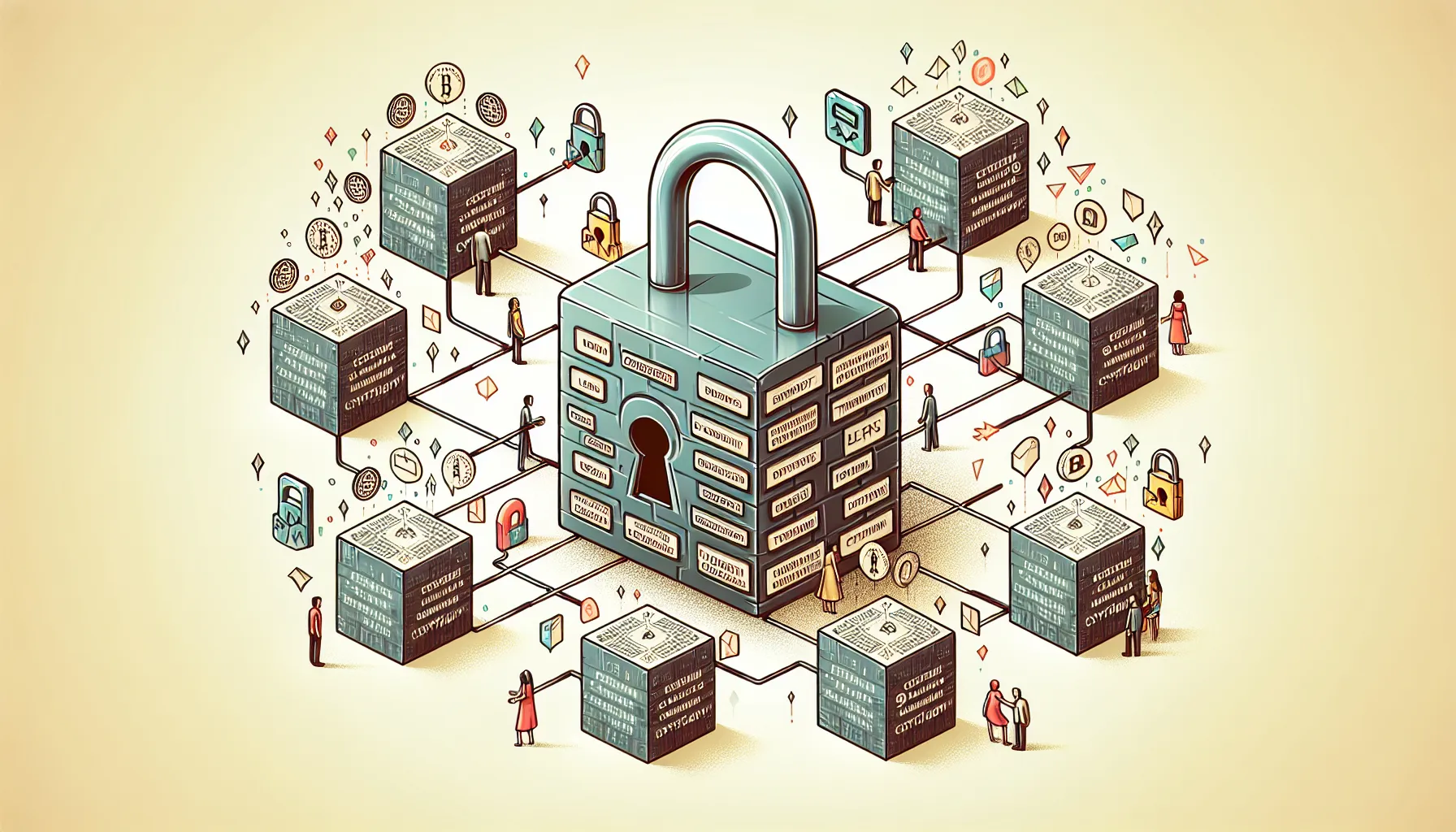Blockchain Unveiled: Beyond Cryptocurrency Lies a World of Opportunity
Blockchain technology has gained significant attention and has the potential to revolutionize various industries beyond just cryptocurrency. Its importance and relevance extend far beyond financial transactions, opening up new avenues for innovation and transformation. The growing interest in blockchain technology is evident as industries worldwide recognize the opportunities it presents.
Blockchain: More than Just Cryptocurrency
Blockchain goes beyond cryptocurrency by offering secure and transparent record-keeping, eliminating the need for intermediaries, and ensuring trust and accuracy in transactions. It has the power to solve real-world problems such as reducing fraud in banking, enhancing cybersecurity, improving supply chain management, and revolutionizing healthcare by securely storing and sharing patient data.
Blockchain’s Impact on Various Industries
The scope of blockchain beyond cryptocurrency can be understood through keywords such as banking, cybersecurity, internet of things, government, healthcare, ride-sharing economy, supply chain, encrypted messaging, contracts, pharmaceuticals, and many more. These keywords represent the diverse range of industries that can benefit from blockchain technology.
Real-World Applications of Blockchain
With its decentralized and immutable nature, blockchain provides transparency, security, and efficiency, making it a valuable tool for transforming businesses and industries. The real-world applications of blockchain are vast and promising, offering solutions to challenges in areas such as finance, healthcare, government, supply chain management, and even the advertising and affiliate marketing industries.
The Future of Blockchain
As blockchain technology continues to evolve, it is crucial to explore its potential and embrace its possibilities. The future of blockchain holds promise in areas such as decentralized finance, tokenization of assets, non-fungible tokens, and decentralized autonomous organizations. The possibilities are endless, and the impact of blockchain technology goes beyond cryptocurrency.
Revolutionizing Industries with Blockchain Technology
Blockchain technology has transformed various industries beyond cryptocurrency, offering a world of opportunities for innovation and transformation. At its core, blockchain is a decentralized and distributed ledger system that ensures secure and transparent transactions. Unlike traditional centralized systems, blockchain operates without the need for a central authority, making it resistant to fraud and tampering.
Understanding the Basics of Blockchain
One of the key aspects of blockchain technology is its concept of a distributed ledger. This ledger consists of a network of computers or nodes that store and verify transactions. Each transaction is recorded in a block, which is linked to the previous block, forming a chain of blocks. This structure ensures the integrity and immutability of the data stored on the blockchain.
The Role of Cryptography in Blockchain
Cryptography plays a crucial role in protecting the integrity of the blockchain. Through the use of cryptographic algorithms, transactions are securely encrypted and verified. This ensures that only authorized parties can access and modify the data on the blockchain, enhancing its security.
Transforming Industries with Blockchain
Beyond cryptocurrency, blockchain technology has the potential to revolutionize various industries:
Banking Sector: Blockchain can revolutionize traditional processes by enhancing security, reducing fraud, and improving the Know Your Customer (KYC) process. For example, blockchain can facilitate faster and more cost-effective cross-border payments, enable the use of smart contracts, and enhance identity verification.
Healthcare: Blockchain technology can securely store and share medical data, improving interoperability and patient privacy. It can enable efficient drug traceability, streamline clinical trials, and support personalized treatment regimes. By leveraging blockchain, healthcare providers can ensure the integrity and privacy of sensitive patient information.
Cybersecurity: Blockchain provides a decentralized and tamper-proof system, enhancing cybersecurity measures. It can prevent data breaches, ensure secure transactions, and play a role in identity management and authentication.
Internet of Things (IoT): Blockchain can address challenges in security and data privacy in IoT networks. It ensures the secure exchange of data in areas such as supply chain management and smart cities.
Government Processes: Blockchain can improve transparency and efficiency in government processes, such as voting systems, land registry, and public finance management. It provides a secure and transparent platform for governmental operations.
Challenges and Future Outlook
Despite the numerous benefits, blockchain technology faces challenges such as scalability, energy consumption, regulatory frameworks, and interoperability. However, efforts are being made to address these challenges and enhance the technology’s capabilities. The future outlook for blockchain includes decentralized finance (DeFi), tokenization of assets, non-fungible tokens (NFTs), and decentralized autonomous organizations (DAOs).
In conclusion, blockchain technology offers more than just cryptocurrency. Its decentralized and transparent nature has the potential to revolutionize various industries, enhancing security, efficiency, and trust. As organizations continue to explore and implement blockchain solutions, the impact on industries and digital interactions is expected to be significant.

The Power of Blockchain Beyond Cryptocurrency
Blockchain technology has the potential to revolutionize various industries, going far beyond cryptocurrency. Its decentralized and transparent nature enhances security, improves efficiency, and increases trust. Let’s explore some of the key applications of blockchain:



